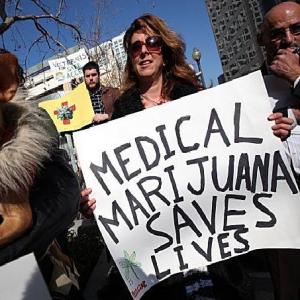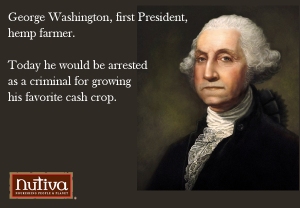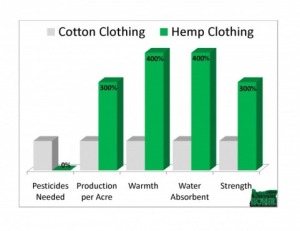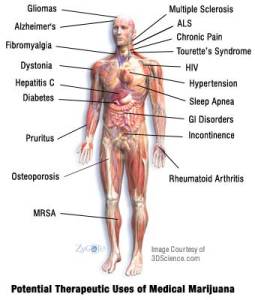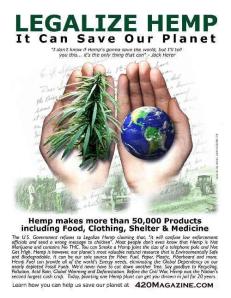Of all the consequences of marijuana prohibition, none is more tragic than the denial of medical marijuana to the tens of thousands of patients who could benefit from its therapeutic use. Modern research tells us that cannabis is a valuable aid in the treatment of a wide range of clinical applications. Here is a list of more than 60 U.S. and international health organizations that support granting patients immediate legal access to medicinal marijuana under a physicians supervision. Yet the federal government still views marijuana as a class 1 drug under the Controlled Substances Act of 1970 which characterizes marijuana as having no accepted medical use, and deemed as dangerous as heroin. This is simply a lie, and because of this lie potentially millions of people don’t have access to a drug that could really improve their quality of life, and those people that do have access have to worry about the federal government raiding their clinics, and stealing their medicine.
If you were to go search the web the amount of stories of marijuana helping patients is infinite. Below are just a few of these stories, and it’s stories like these I believe leave little doubt for why the federal government must recognize state laws regarding medical marijuana and begin endorsing marijuana as a legitimate prescription drug. As Joseph Casias says, “It’s not right to take people’s medicine away from them.”
Cancer patient speaks about medical marijuana
Marijuana helps child with autism
Man uses medical marijuana to help him with his muscular dystrophy
7-year-old cancer patient is prescribed medicinal marijuana
For decades marijuana proponents have argued people should have the freedom to smoke marijuana legally, with few arguments valid enough to warrant any reforms in the marijuana laws. Within the last 10 years however much has been made about both the economic costs of the “war on weed”, and the economic benefits its legalization has to offer. In a 2007 study by Jon Gettman Ph.D., he concluded that the U.S. marijuana industry is a 113 billion dollar industry that costs taxpayers 31.1 billion in lost tax revenue. Gettman also suggested that that 10.7 billion could be saved each year if marijuana arrests were stopped. There are many other studies similar to Gettman’s that suggest that cannabis could save and produce billions of dollars for the economy, yet they fail to mention one critical part. That being the thousands of jobs that could be created by the marijuana industry, and they can’t be ignored. Click here to see why former Presidential canidate Ron Paul supports the legalization of marijuana, and below is a great argument by Supreme Court Judge James P. Gray, for the legalization for the legalization of marijuana and how it would be regulated.
Retired Judge Jim Gray argues for the legalization and regulation of marijuana
What also cannot be ignored and has the potential to create significantly more jobs and money for the U.S. is the hemp industry, or lack there of. Thomas Jefferson once said “Hemp is of first necessity to the wealth and protection of the country.” This may seem like a bold statement for a President to make, but back then it was an extremely intelligent statement for anyone to make. Hemp unlike marijuana, can’t get you high, that is a fact, you would have to smoke a joint the size of a telephone poll to get a buzz from it, which is impossible. It is a chemically unique strain of cannabis that is grown for its fiber and seeds, which have tens of thousands of uses. However, due to a smear campaign in early to mid 1900’s hemp was made to seem to be exactly like marijuana, and politicians and regular people alike are still buying it. The interesting thing is that Hemp is legal to possess and buy in the U.S. but it is illegal to cultivate, does that make sense? Below is a short video about hemp, and a theory about why it is illegal.
The truth about hemp
Also learn about the growing hemp industry in Australia here.
While the United States refuses to allow hemp to be cultivated, Canada, our neighbor to the north is the leader in the global hemp marketplace. It seems that the sad fact of the matter is that major industries such as cotton, oil, paper, etc., don’t want hemp to be cultivated in the U.S. out of fear that it will hurt their business. Should we the people or the government protect major industries even if their is a proven, better, alternative out there? I don’t think we should, and that does not sound like democracy to me.
Want to know more facts about hemp and how it can help save the planet? Click here.
